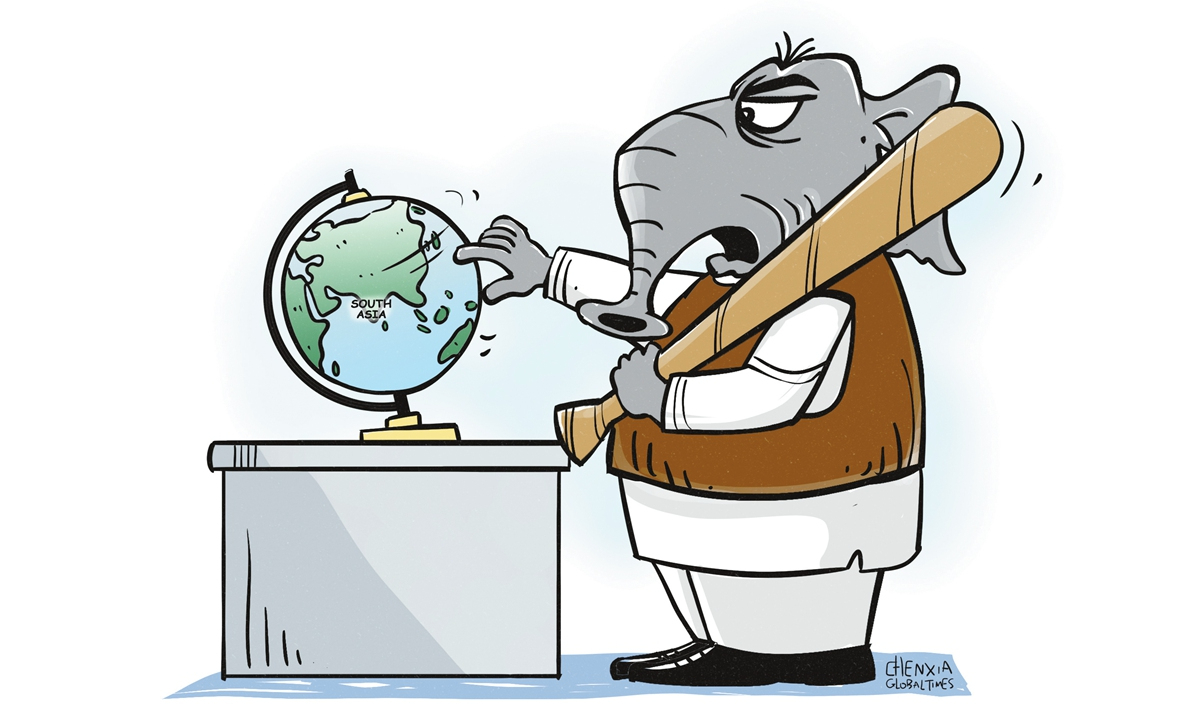
Illustration: Chen Xia/GT
During the visit of the Sri Lankan President Anura Kumara Dissanayake to India, some Indian media outlets diverted attention from India-Sri Lanka relations and instead sought to sow discord between China and Sri Lanka. An expert believes that the Indian media's narratives reflect a zero-sum mentality, something the Indian media should critically reconsider. With such a mentality, some Indian outlets are playing the role of negative energy, as they flatly ignore development interests of India's smaller neighboring countries, the expert noted.
The recently elected Sri Lankan President is on his first bilateral visit to India, according to the Indian Express. The Indian Express cited a statement noting that "India being Sri Lanka's closest maritime neighbor, President Dissanayake reiterated Sri Lanka's stated position of not permitting its territory to be used in any manner inimical to the security of India as well as towards regional stability".
This is seen as a thinly-veiled reference to China's activities in the Indian Ocean Region, the report said, adding that it comes amid Chinese ship visits to Sri Lanka and China's development of Hambantota port in the island nation.
Some Indian media outlets often adopt an outdated perspective, treating South Asian countries as their exclusive sphere of influence and frequently criticizing China's legitimate cooperation with South Asian nations, Qian Feng, director of the research department at the National Strategy Institute at Tsinghua University, told the Global Times on Tuesday, noting that this kind of hype contradicts global development trends and disregards the sovereign diplomatic rights of other South Asian nations.
Sri Lanka has been cooperating with China under the Belt and Road Initiative (BRI) framework for several years, which has delivered tangible benefits to Sri Lanka, said Qian, adding that therefore, Dissanayake is likely to pursue a balanced and pragmatic foreign policy, while adopting a cooperative and pragmatic approach to strengthening ties with China. As German media DW noted in an article after Dissanayake's election, Dissanayake has expressed his intentions to boost ties with both China and India.
Indian media should reflect on why many South Asian countries have increasingly distanced themselves from India in recent years, and even opposed India, Qian said. The attitude of Indian media, manifested through interference in South Asian countries' affairs and unequal treatment, has to bear certain blame, as such an attitude has resulted in inevitable backlash from these nations and their civil societies, Qian added, noting that regional countries have the pressing demand for development, which drives their cooperation with China.
Every country in the world enjoys the right to develop its own foreign policy. However, some Indian media appear to dismiss the rights of South Asian countries to develop independent foreign policies, which lays bare their entrenched zero-sum mindset, according to Qian.




